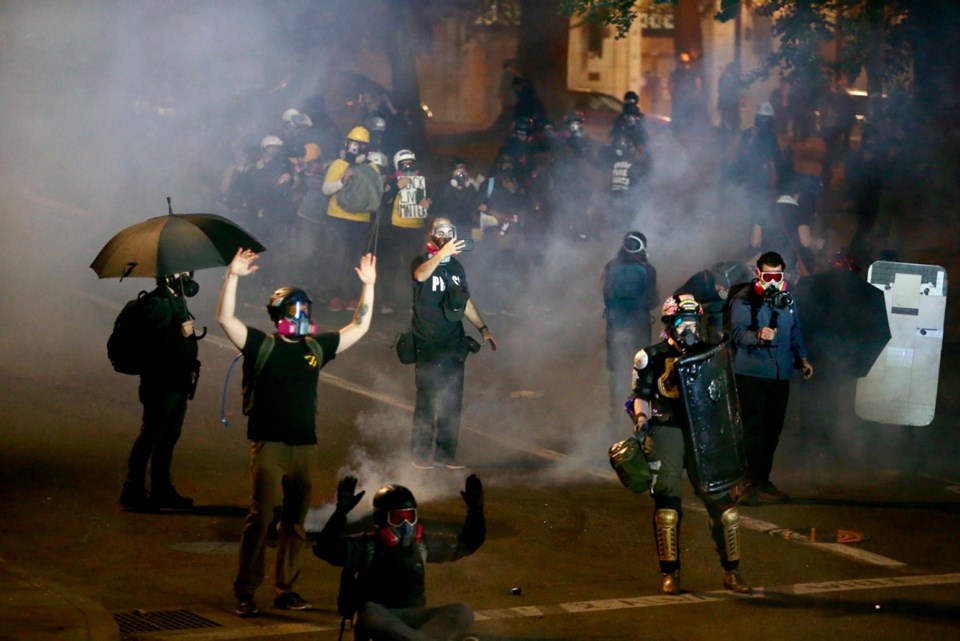The beat goes on, and police services across the country and around the world might find themselves marching to different orders in 2021.
Budget talks are already underway in some municipalities, and city councillors will be crunching the numbers. While the local politics of policing will be interesting to follow, who knows what might shake out at the provincial and federal levels.
You don’t have to venture far in most cities to see police lights flashing and hear sirens wailing. It has become disturbingly common especially in the heart of most downtown cores.
This week, we cast some of that light on Peel’s Sixth Policing Principle, which states “police use physical force to the extent necessary to secure observance of the law or to restore order only when the exercise of persuasion, advice and warning is found to be insufficient.”
Some would argue that the use of force by many police departments and their officers seems to be on the rise. It’s a complex problem that certainly merits close attention, and a lot more research.
Let’s face it, modern policing has provided more tools to secure observance of the law and restore order than ever before. As civilians, we would prefer an officer’s persuasion, advice or warning over staring down the barrel of gun, being stunned by a Taser, struck with a baton or pepper sprayed — anytime.
Last week, the Ontario Human Rights Commission released a disturbing report on their inquiry into racial profiling and racial discrimination of Black persons by the Toronto Police. It’s their second interim report. The data analysis ranges from 2013 to 2017.
The findings indicate that black people represent almost 32 per cent of people charged while they only make up 8.8 per cent of the population in Toronto. There has been an immediate call for action by the commission, and many others.
The Special Investigations Unit, which is responsible for investigating incidents of death, serious injury, sexual allegations and assaults, involved Black people in 25 per cent of all investigations.
Further findings indicated that 39 per cent of cases are not investigated by this unit because they involve a lower-level of force, which begs the question: Who is investigating those cases?
There are so many questions now being raised regarding matters where the police have used force, and the public is demanding answers. It’s complicated further when police investigate these matters themselves with little or no civilian oversight.
Further frustration stems from how long many of these investigations take. The RCMP watchdog is recommending statutory deadlines in order to speed up this process and have their officers respond in a timelier manner.
The Civilian Review and Complaints Commission for the RCMP says that their case findings are often sent to the police service for further input before a final report is completed, and this can sometimes take years.
It’s little wonder then that the public or a victim loses faith in the police. Remember, justice delayed is justice denied.
The current state of policing should encourage us to seek out the best ways possible to reduce the need for officers to use force, although it will always be necessary in some cases. Training is always the first and best line of defence so perhaps more verbal judo, de-escalation tactics or simply having a subtler approach could save more lives.
Every police incident is unique, and can often be unpredictable so officer safety is paramount. However, we must protect everyone in these circumstances, especially those who have been marginalized and are most vulnerable.
In Margaret Wheatley’s book titled Turning to One Another: Simple Conversations to Restore Hope to the Future, the author shares a poem we can all learn from.
In it, she writes: “Remember, you don’t fear people whose story you know. Real listening always brings people closer together.”
Perhaps we should all start listening more, including police officers. We must all strive to resolve our problems peacefully. We might fear people a lot less if we just took the time that was necessary to learn their stories before resorting to force of any kind.
Steve Woolrich is a Crime Prevention Practitioner and the principal of Rethink Urban’s collaborative focusing on Community Safety and Well-Being.



